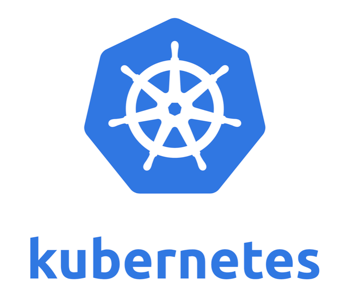Posts tagged Kubernetes
Conquering Kubernetes Complexity: Why Java Developers Need More Than Just Containers
Published on 08 Aug 2025
by Chiara Civardi
Topics:
Microservices,
Cloud,
Kubernetes,
Containers,
Payara Cloud
|
0 Comments
Kubernetes, also known as K8s has become the de facto platform for orchestrating modern microservices architectures, promising resilience, scalability and faster deployment pipelines for Java applications. But for many developers, that promise often hides a thorny reality: Kubernetes is powerful—but also painfully complex.
Join our webinar! Engineering a Modern Java Platform: Making Kubernetes Work for Java Teams
Published on 20 May 2025
by Dominika Tasarz
Topics:
Kubernetes,
Payara Events,
platform engineering
|
0 Comments
Running traditional Java applications in Kubernetes environments can be a complex challenge. From runtime configuration issues to memory management mismatches, many Java workloads aren’t designed with containers in mind. On top of that, adapting familiar Java development tools and practices to the cloud-native world can be a steep learning curve for teams.
In this webinar (REGISTER HERE), we'll explore how Payara is using Platform Engineering to simplify this transition.
Mitigating Kubernetes Misconfigurations: How To Secure Your Deployments
Published on 19 May 2025
by Chiara Civardi
Topics:
Docker,
Cloud-native,
Kubernetes,
Payara Cloud
|
0 Comments
Almost any developer looking to leverage containers turns to Kubernetes (K8s) for orchestration. However, with its complexity comes security risks, particularly misconfigurations, which remain one of the most critical attack vectors in cloud-native environments. In effect, K8s misconfigurations can lead to data breaches, privilege escalations and service disruptions.
This blog examines key technical security challenges associated with K8s and demonstrates how to mitigate these risks through platform engineering.
No-Code Jakarta EE & MicroProfile Cloud Hosting for Startups: Payara Cloud
Published on 18 Jun 2024
by Luqman Saeed
Topics:
DevOps,
Developer,
Kubernetes,
Payara Cloud,
Getting Started with Payara Cloud,
start-ups
|
0 Comments
Start-ups are hotbeds of innovation, where speed, agility and resourcefulness are key to success. But in the world of enterprise Java applications, managing complex cloud deployment infrastructure can quickly become a bottleneck and take up considerable time from your developers. To address these issues and streamline cloud deployments, we created Payara Cloud.
You Might Not Need Kubernetes. Or Containers.
Published on 23 Jan 2024
by Patrik Duditš
Topics:
Cloud,
Kubernetes
|
0 Comments
Kubernetes is a topic that is frequently discussed in the development community, especially as the IT landscape increasingly shifts towards cloud and microservices. However, it’s crucial to evaluate whether it is genuinely indispensable for your environment or just another case of the next 'new and shiny' object capturing attention without substantial benefits. In this blog, we’ll delve into the reasons why Kubernetes might sometimes fall victim to the hype and explore whether it is the right fit for all scenarios.
Do You Really Need Kubernetes?
Published on 09 Jun 2021
by Rudy De Busscher
Topics:
Cloud-native,
Kubernetes,
Containers,
Payara Cloud
|
0 Comments
These days, it seems Kubernetes is a topic that is never too far from people's lips. The tool, and the associated tools built around it, are talked about so often it seems it's the only subject important to developers these days - especially as the IT world becomes increasingly orientated towards cloud and microservices.
But in spite of all the conversation around Kubernetes... do you really need Kubernetes for your environment? Or is it just another case of the next 'new and shiny' object, with people distracted by the novelty and possibility, rather than the facts? In this blog, I'll take a closer look at why Kubernetes might be a case of the hype outweighing the helpfulness in most cases.
Securing Microservices with Auth0 and MicroProfile in Kubernetes without a hassle
Published on 30 Mar 2020
by Ondro Mihályi
Topics:
Microservices,
MicroProfile,
Kubernetes,
Conferences,
Java
|
0 Comments
In this day and age, securing enterprise platforms is a challenge that developers and consultants tackle in an uninformed manner, producing subpar solutions in most cases. To combat this pattern, third-party security services such as Auth0 have been devised to externalize the security of services, and they focus on stable implementations of common enterprise use cases (identity management, OAuth compatibility, and so on), and platforms such as Eclipse MicroProfile allow for their easy integration with enterprise Java microservices. Moreover, in combination with Kubernetes, MicroProfile is a very powerful tool to simplify securing microservices, monitoring them and creating reproducible deployments.
Using Container Orchestration Tools with Payara Platform
Published on 30 Sep 2019
by Rudy De Busscher
Topics:
Docker,
Kubernetes,
Containers
|
2 Comments
Rolling Application Upgrades with Payara Micro and Kubernetes
Published on 27 Aug 2019
by Rudy De Busscher
Topics:
Payara Micro,
MicroProfile,
Kubernetes
|
0 Comments
Introduction
Application updates are required as part of the normal maintenance process of your application lifecycle management. These updates should be as smooth as possible, and especially for a micro-services environment, performed with zero-downtime of your Payara Micro application. The Kubernetes Rolling Upgrades feature can help you with this.
Using Kubernetes Secrets with Payara Micro
Published on 21 Aug 2019
by Rudy De Busscher
Topics:
Payara Micro,
Kubernetes
|
0 Comments




.jpg?width=500&name=Payara%20Cloud%20Maze-01%20(1).jpg)




